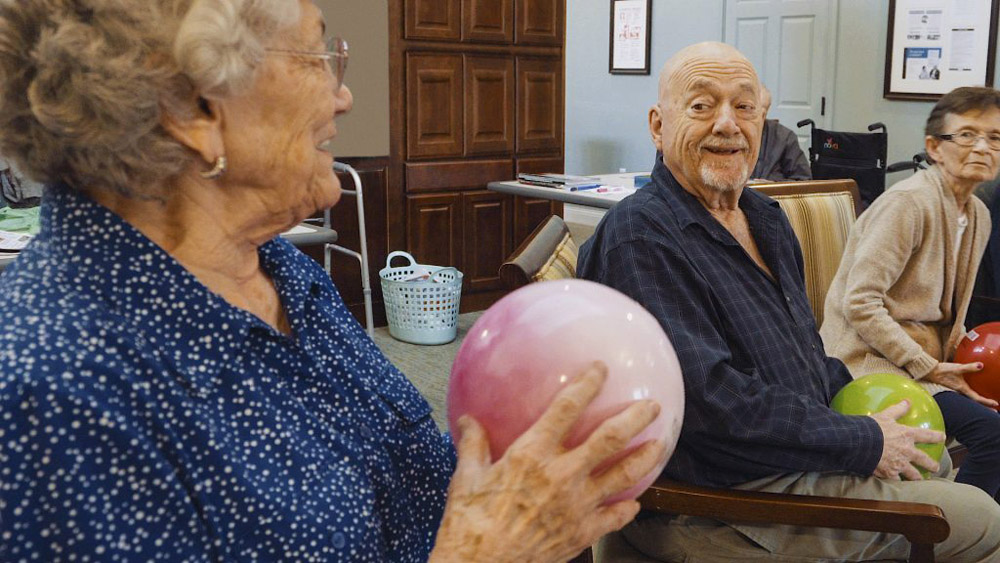Memory Care Explained: Understanding Services That Make a Difference
Memory care services have emerged as an essential resource for individuals facing cognitive problems, such as Alzheimer's and dementia. These specific programs not only offer safe and secure settings and skilled staff however also include customized activities that boost cognitive engagement and psychological well-being. Understanding the variety of therapies and assistance systems readily available is essential for households guiding through these facility decisions. As we explore the different elements that add to efficient memory care, it becomes clear that the ideal selections can considerably affect the top quality of life for both residents and their households.
Overview of Memory Care

Specialized Therapies Available
Several specialized therapies are readily available within memory care services, each customized to deal with the special obstacles dealt with by people with cognitive problems. These therapies aim to enhance cognitive performance, advertise psychological wellness, and improve general top quality of life.One utilized method is reminiscence therapy, which encourages individuals to review previous experiences through photographs, music, and familiar things. This method can evoke memories, boost discussion, and foster connections with caregivers and peers.Another effective therapy is cognitive stimulation treatment (CST), made to involve individuals in psychological workouts that promote cognitive abilities and social interaction. CST sessions typically involve problems, quizzes, and conversations, giving organized cognitive obstacles that help preserve mental agility.Art and music treatment are additionally indispensable parts of memory care. These treatments take advantage of creative expression to promote interaction and emotional release, often benefiting those that might have a hard time with verbal communication.Additionally, animal-assisted therapy has gained recognition for its capability to reduce anxiousness and promote social interaction via the visibility of treatment animals. Jointly, these specialized therapies play an essential duty in improving the lives of individuals with memory problems, fostering an encouraging and improving atmosphere.
Involving Activities and Programs
Involving tasks and programs play a vital role in memory care solutions, using people promoting possibilities that advertise cognitive interaction and social communication. Tailored to the special needs of residents, these tasks consist of arts and crafts, music treatment, memory video games, and physical workouts. Such programs are created not only to enhance cognitive feature but additionally to promote a sense of success and community (Alzheimer’s Care Charlotte).Social interaction is an important component of memory care, as it assists minimize sensations of isolation and anxiety frequently experienced by people with memory disabilities. Group tasks motivate interaction and collaboration, producing a setting where citizens can share experiences and develop relationships.Moreover, involving activities can be adjusted to differing degrees of cognitive ability, guaranteeing that all individuals can participate meaningfully. Employee learnt memory care facilitate these programs, offering support and inspiration tailored to each individual's capabilities.Incorporating acquainted regimens and interests right into these tasks can even more improve their performance, assisting homeowners attach with their past and maintain a feeling of identification. In general, a well-shaped selection of interesting tasks enhances the lives of those in memory care, adding to their total health and top quality of life
Relevance of Family Members Assistance

Picking the Right Facility
Choosing the best memory care facility is a crucial choice that calls for mindful factor to consider of numerous variables. Analyze the degree of care your loved one requirements. Facilities differ in their offerings, from fundamental aid to specialized memory care programs tailored for problems such as Alzheimer's and various other dementias.Next, take into consideration the environment of the center. An inviting, secure, and comfy atmosphere can greatly impact a homeowner's wellness. See capacity centers to examine their cleanliness, safety and security functions, and total atmosphere. Observe personnel communications with citizens, as compassionate and skilled caregivers are basic to top quality care.Additionally, ask about the center's staffing ratios and certifications. Alzheimer’s Care Charlotte. Sufficient staffing warranties personalized focus and timely actions to residents' requirements. Review the schedule of tasks and programs that promote interaction, socializing, and cognitive stimulation, as these are essential for keeping lifestyle
Often Asked Inquiries
What Is the Price of Memory Care Providers?
The cost of memory care solutions differs significantly based on place, center kind, and level of care needed. On standard, families can expect to pay between $4,000 and $7,000 monthly - Memory Care. These costs often encompass housing, meals, personal care, and specific support for memory-related conditions. It is necessary for family members to research study alternatives extensively and consider monetary support programs, insurance coverage, and prospective lasting care intending to take care of these prices properly

Just How Is Staff Educated to Manage Memory Care Citizens?
Team training for memory care citizens is extensive and specialized, focusing on recognizing the special demands of individuals with cognitive impairments. Programs generally consist of education on dementia-related conditions, interaction strategies, behavior monitoring, and emotional assistance approaches. Training also highlights the value of developing a safe and stimulating atmosphere. Continuous education and learning and hands-on experience guarantee personnel are furnished to supply caring care, fostering dignity and regard for citizens while advertising their overall well-being.
Are Memory Care Facilities Licensed and Managed?
Yes, memory care facilities are subject to licensing and regulative oversight, which differs by state - Dementia Care. These policies guarantee that facilities fulfill specific requirements connected to safety, care top quality, staffing, and resident rights. Typically, state wellness divisions or governing bodies carry out evaluations and monitor compliance to secure homeowners with memory impairments. Prospective homeowners and households ought to validate a facility's licensing standing and regulative history to ascertain ample care and assistance services are offered
Can Homeowners Customize Their Living Spaces?
Yes, citizens in memory care centers typically have the chance to customize their space. This customization may include picking designs, setting up furnishings, or displaying individual valuables, which can help develop a feeling of familiarity and convenience. Such customization is encouraged to advertise individuality and enhance the psychological well-being of homeowners. Nevertheless, any kind of alterations are commonly based on center standards to guarantee safety and security and keep an encouraging atmosphere for all homeowners.
What Are the Seeing Hours for Household Members?
Seeing hours for member of the family are typically established to ensure that locals obtain proper care while preserving meaningful links with their liked ones. These hours might vary by facility, however commonly, visitation is enabled throughout marked times, typically in the mid-day and very early night. Alzheimer’s Care. It is suggested for member of the family to validate particular checking out hours with the center to assure conformity with any policies in position, as well as to improve the general experience for both locals and site visitors
Comments on “How Alzheimer’s Care Teams Handle Behavioral Challenges”